These days, it’s more important than ever to find some peace and quiet. Tea is loved all over the world because it calms and wakes you up. On the other hand, tea is better for you than coffee, which has more caffeine, and comes in many tastes. It’s also a great drink for any time of the day.
Japan’s old tea ceremonies and India’s busy tea markets are just a few examples of how this easy drink has been important for a long time. Tea is good for you in many ways, like lowering your risk of chronic diseases and making you feel less worried. Researchers are still learning more about these points.
This guide will show you the top 10 best tea that will help you relax and are good for your health, whether you’re a seasoned tea expert or just recently became interested in tea. While you relax with a cup of tea, let’s learn more about this best tea. Each sip is a step towards peace and happiness.
Best Tea 1. Chamomile Tea

People often drink chamomile tea to help them relax and sleep. People sometimes use it to treat nervousness and insomnia. Composed of antioxidants that may help reduce inflammation and promote rest, chamomile tea comes from daisy-like flowers in the Asteraceae family.
Health Benefits:
Improves Sleep Quality: Chamomile contains apigenin, an antioxidant that binds to certain brain receptors and makes you sleepy and less likely to have trouble sleeping.
Relieves Anxiety: Research shows that chamomile may help people with mild anxiety feel better.
Supports Digestive Health: Thanks to its anti-inflammatory effects, chamomile can help with digestive problems like diarrhea, nausea, and stomach ulcers.
How to Brew:
Steep 1-2 teaspoons of dried chamomile flowers in hot water for 5–10 minutes. Add honey for a touch of sweetness, if desired.
Best Tea 2. Lavender Tea
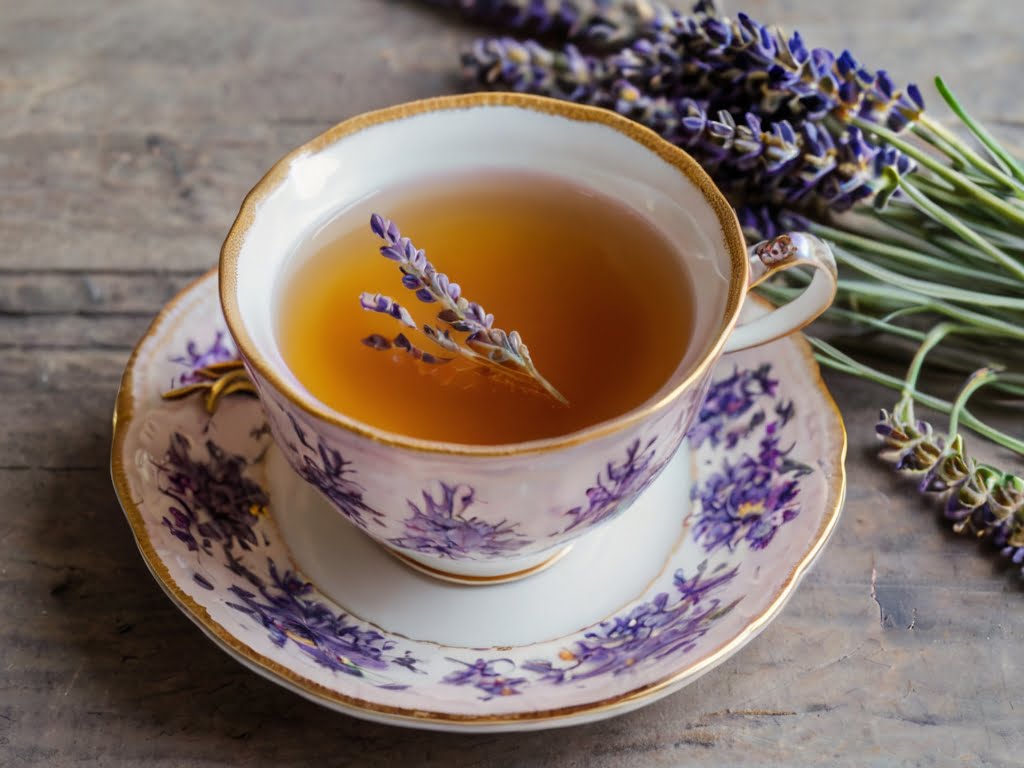
Lavender tea is another excellent choice for relaxation. Known for its fragrant aroma, lavender has been used for centuries to alleviate stress and promote sleep.
Health Benefits:
- Reduces Stress and Anxiety: Lavender tea can help soothe symptoms of stress and anxiety, making it a perfect evening beverage.
- Improves Sleep Quality: The calming effects of lavender can help you fall asleep faster and enjoy a more restful sleep.
- Alleviates Headaches and Migraines: Lavender’s anti-inflammatory properties can help reduce the severity of headaches and migraines.
How to Brew:
Steep 1-2 teaspoons of dried lavender buds in hot water for 5–10 minutes. Enjoy it plain or with a bit of honey.
Best Tea 3. Peppermint Tea
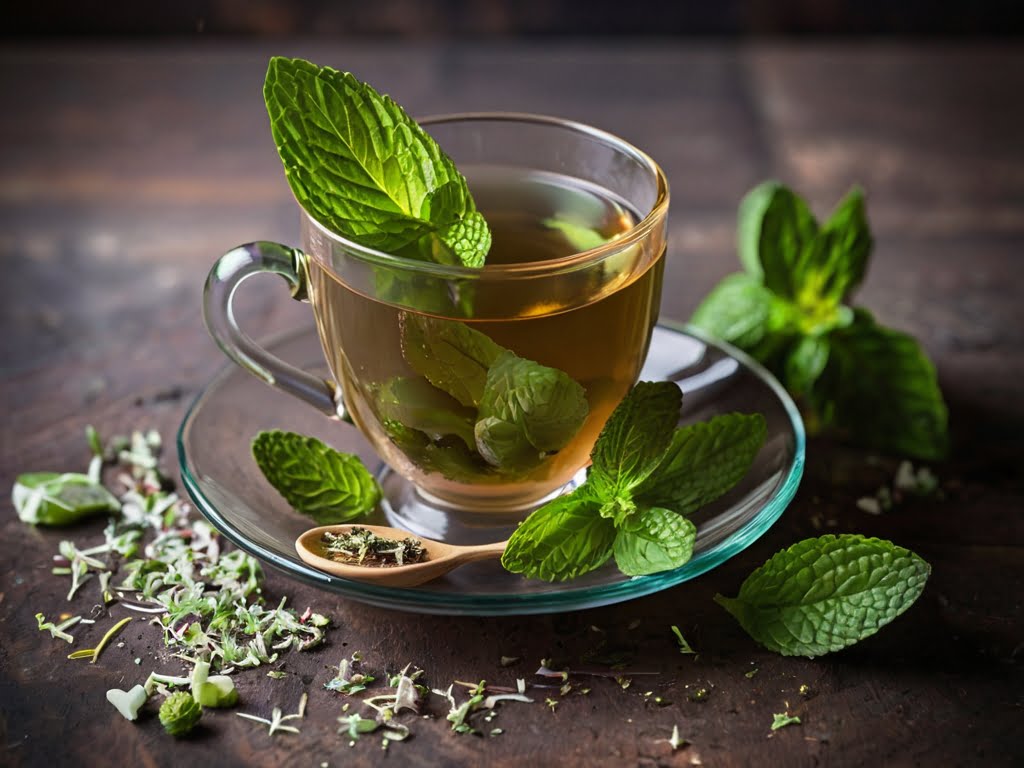
Peppermint tea is well-known for its refreshing taste and digestive benefits. The menthol in peppermint leaves provides a cooling sensation that can help relax the body and mind.
Health Benefits:
- Eases Digestive Issues: Peppermint tea can help relieve symptoms of bloating, gas, and indigestion.
- Supports Respiratory Health: The menthol in peppermint can help clear nasal passages and improve breathing.
- Freshens Breath: Peppermint’s natural antibacterial properties can help prevent bad breath.
How to Brew:
Steep fresh or dried peppermint leaves in hot water for 5–10 minutes. Add lemon or honey for extra flavour.
Best Tea 4. Rooibos Tea

Rooibos tea, also known as red bush tea, is a caffeine-free herbal tea from South Africa. It is rich in antioxidants and has a naturally sweet, earthy flavor.
Health Benefits:
- Rich in Antioxidants: Rooibos tea contains antioxidants that help protect cells from damage and may reduce inflammation.
- Supports Heart Health: Drinking rooibos tea may help lower blood pressure and improve cholesterol levels.
- Aids in Weight Management: Rooibos tea is calorie-free and may help regulate blood sugar levels, making it a good choice for those managing their weight.
How to Brew:
Steep 1-2 teaspoons of rooibos leaves in boiling water for 5–10 minutes. Enjoy it plain or with a splash of milk.
Best Tea 5. Green Tea

Green tea is celebrated for its numerous health benefits, thanks to its high content of antioxidants and polyphenols. It has a mild, slightly grassy flavor and can be enjoyed hot or cold.
Health Benefits:
- Boosts Metabolism: Green tea can help increase metabolic rate and promote fat burning.
- Supports Brain Health: The antioxidants in green tea may help protect the brain from aging and improve cognitive function.
- Reduces Risk of Chronic Diseases: Regular consumption of green tea is associated with a lower risk of cardiovascular diseases and certain types of cancer.
How to Brew:
Steep 1 teaspoon of green tea leaves in hot (not boiling) water for 2-3 minutes. Add lemon or honey if desired.
Best Tea 6. Hibiscus Tea
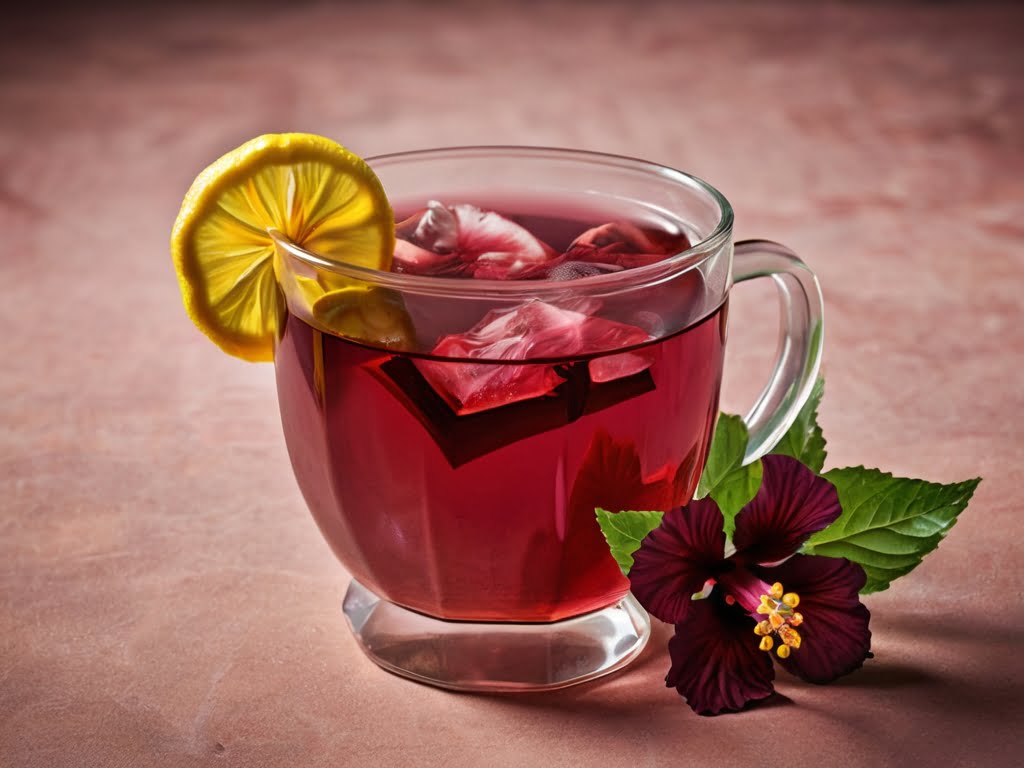
Hibiscus tea is a vibrant, tart tea made from the petals of the hibiscus flower. It is rich in vitamin C and antioxidants.
Health Benefits:
- Lowers Blood Pressure: May help reduce high blood pressure.
- Supports Liver Health: Promotes liver health and helps detoxify the body.
- Rich in Antioxidants: Helps fight free radicals and reduce oxidative stress.
How to Brew:
Steep dried hibiscus petals in boiling water for 5–10 minutes. Add honey or sugar to balance the tartness.
Best Tea 7. Ginger Tea
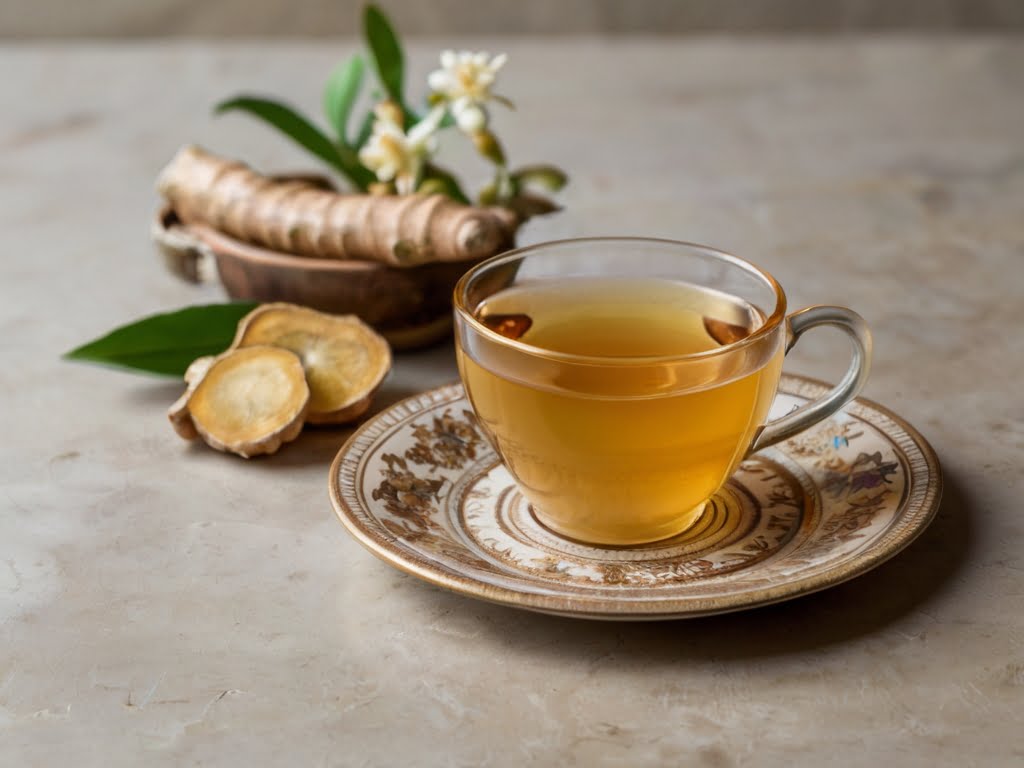
Ginger tea is a spicy and invigorating beverage known for its powerful anti-inflammatory and antioxidant effects. Health Benefits:
- Relieves Nausea: Effective at reducing nausea, especially during pregnancy.
- Supports Digestive Health: Helps prevent stomach ulcers and relieve indigestion.
- Reduces Pain: Can alleviate pain associated with menstruation and other conditions.
How to Brew:
Steep fresh ginger slices in boiling water for 10–15 minutes. Add honey and lemon for added flavor.
Best Tea 8. Lemon Balm Tea
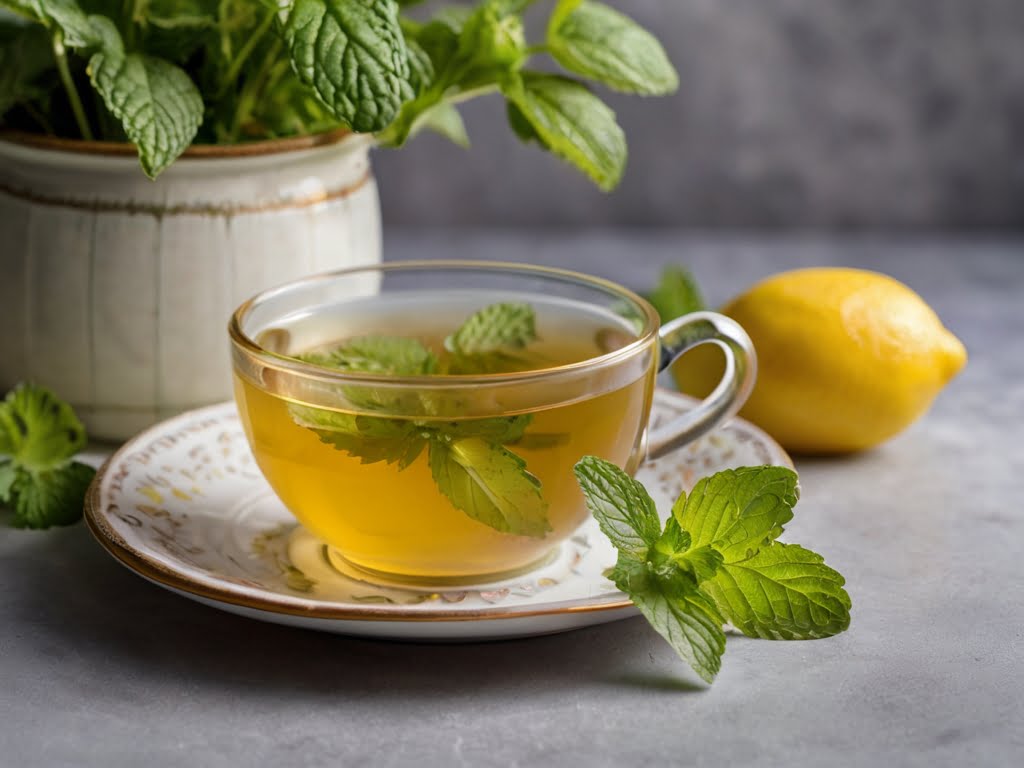
Lemon balm tea has a light, lemony flavor and is known for its calming and health-promoting properties. Health Benefits:
- Reduces Anxiety: Helps alleviate symptoms of anxiety and stress.
- Improves Sleep Quality: Promotes relaxation and better sleep.
- Supports Heart Health: May improve arterial stiffness and antioxidant levels.
How to Brew:
Steep fresh or dried lemon balm leaves in hot water for 5–10 minutes. Add honey for sweetness.
Best Tea 9. Sage Tea
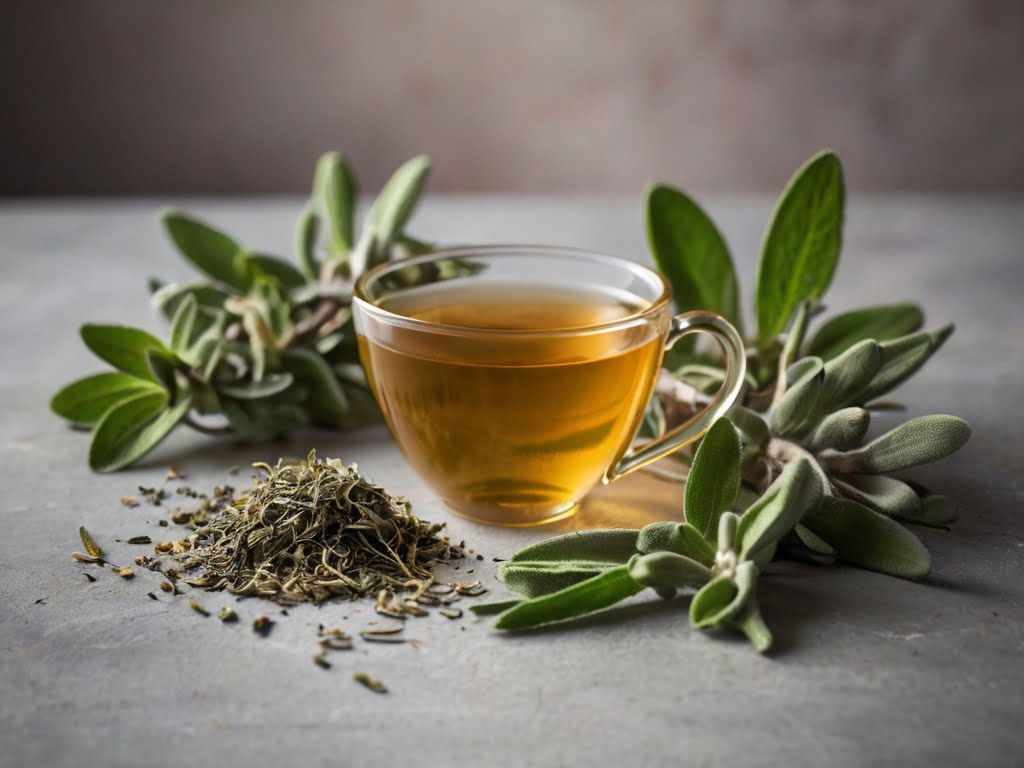
Sage tea is known for its strong flavor and potential health benefits, particularly for cognitive function and heart health.
Health Benefits:
- Improves Cognitive Function: May enhance memory and brain health.
- Supports Heart Health: Helps lower cholesterol levels.
- Anti-Inflammatory: Reduces inflammation and oxidative stress.
How to Brew:
Steep fresh or dried sage leaves in hot water for 5–10 minutes. Add lemon or honey if desired.
Best Tea 10. Echinacea Tea
Echinacea tea is often used to boost the immune system and fight off colds and infections.
Health Benefits:
- Boosts Immune System: May help reduce the duration and severity of colds.
- Anti-Inflammatory: Contains compounds that reduce inflammation.
- Supports Respiratory Health: Helps alleviate symptoms of respiratory infections.
How to Brew:
Steep echinacea leaves or flowers in hot water for 5–10 minutes. Add lemon and honey for extra flavor.
Tea is a wonderful friend when you’re trying to relax and stay healthy. People who drink it live a healthier lifestyle because of its long history, wide range of flavours, and scientifically proven health benefits. The best tea has different benefits that can meet different people’s needs and tastes. For example, chamomile and lavender can calm you down, while green and black tea can wake you up.
Adding best tea to your daily routine can be a simple but effective way to strengthen your health. There is a tea for everyone, whether you want to relax after a long day, enhance your defence system, or make your digestive system healthier. Having tea is a tradition that dates back hundreds of years and connects you to a time when life was simpler and more peaceful.
Remember that every cup of best tea is an opportunity to nourish your body and mind as you learn more about it. Relax with each sip, and let the best tea help you live a better, more balanced life.
FAQs
1. does tea expire?
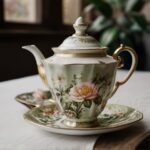
Yes, tea can expire, although it generally has a long shelf life. Over time, tea loses its flavor and aroma, especially if not stored properly. While expired tea is unlikely to cause harm, it might not provide the same quality or health benefits as fresh tea. For optimal taste, it is best to consume tea within a year or two of purchase, and store it in a cool, dry place away from light, air, and moisture. Herbal teas might degrade faster than black or green teas due to their varied ingredients.
2. do tea bags go bad?
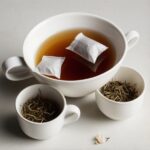
Tea bags can go bad, but they typically have a long shelf life if stored properly. Over time, tea bags may lose their flavor and potency, especially if exposed to air, moisture, or strong odors. While expired tea bags are unlikely to be harmful, the tea brewed from them may taste stale or less flavorful. For best results, tea bags should be stored in a cool, dry place, away from direct light and strong odors, and used within one to two years of purchase to ensure the best quality and taste.
3. does jasmine tea have caffeine?
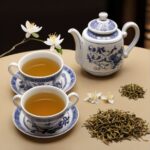
Yes, jasmine tea typically contains caffeine, as it is usually made by blending jasmine blossoms with green tea, black tea, or white tea, all of which naturally contain caffeine. The caffeine content in jasmine tea can vary depending on the type of tea used as its base and the brewing time. On average, a cup of jasmine green tea contains about 20-60 milligrams of caffeine, which is less than a cup of black tea or coffee. For those looking to limit their caffeine intake, some brands offer caffeine-free or decaffeinated jasmine tea options.



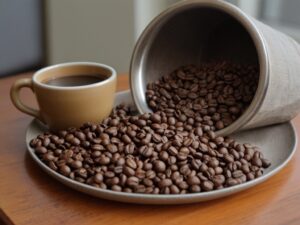


Can you be more specific about the content of your article? After reading it, I still have some doubts. Hope you can help me.
Can you be more specific about the content of your article? After reading it, I still have some doubts. Hope you can help me.
Normally I don’t learn post on blogs, but I would like to say that this write-up very forced me to try and do it! Your writing taste has been amazed me. Thanks, quite nice article.
Thank you so much for your thoughtful comment! I’m truly honored that this post inspired you to read and that you enjoyed the writing style. Your feedback means a lot to me!
Glad to be one of many visitants on this awesome internet site : D.
Thank you for visiting and for your kind words! 😊 It’s great to have you here, and I’m glad you’re enjoying the site. Feel free to explore more, and don’t hesitate to reach out if you ever have any questions!
Thank you for visiting! 😊 I’m glad you’re enjoying the site. Feel free to explore more, and I hope you find even more content you like!
Your style is so unique compared to many other people. Thank you for publishing when you have the opportunity,Guess I will just make this bookmarked.2
Thank you so much for your kind words! 😊 I’m glad you find my style unique—it means a lot. I truly appreciate you bookmarking and supporting the blog. Looking forward to sharing more when inspiration strikes!
Thank you for the kind words! 😊 I’m so glad you find my style unique. I really appreciate you bookmarking the blog, and I’ll keep publishing when I can. Feel free to come back anytime!
Very interesting info !Perfect just what I was searching for!
I’m so glad you found the information helpful! If you need anything else or have more questions, feel free to ask!
Thank you for your sharing. I am worried that I lack creative ideas. It is your article that makes me full of hope. Thank you. But, I have a question, can you help me?
Can you be more specific about the content of your article? After reading it, I still have some doubts. Hope you can help me.
Thank you for reaching out! I appreciate your interest in the article and would be happy to help clarify any points. Could you let me know which specific parts left you with doubts? I’d love to provide more details or explanations!
Can you be more specific about the content of your article? After reading it, I still have some doubts. Hope you can help me.
BPI Net Empresas: Facilitando a Gestão Financeira Empresarial #comment:m4kkbxvj
BPI Net Empresas: Facilitando a Gestão Financeira Empresarial #comment:m4kl3pwa
BPI Net Empresas: Facilitando a Gestão Financeira Empresarial #comment:m4kudtuq
bpinet login Empresas: Facilitando a Gestão Financeira Empresarial #comment:m4ovk5cu
BPI Empresas login Empresas: Facilitando a Gestão Financeira Empresarial #comment:m4p3z45f
BPI Net login login Empresas: Facilitando a Gestão Financeira Empresarial #comment:m4ppkdr8
BPI Net login login Empresas: Facilitando a Gestão Financeira Empresarial #comment:m4qes0ex
BPI Net login login Empresas: Facilitando a Gestão Financeira Empresarial #comment:m4qkjfzq
Acesse o Gerenciador Financeiro pelo Digital PJ, um novo canal de atendimento. Empresas. #comment:m4wtum4e
O BPI Net Empresas permite-lhe efetuar a gestão integrada das contas e realizar operações nacionais e internacionais. Adira já ao Net Banking do BPI. #comment:m5182cuk
Lovely website! I am loving it!! Will come back again. I am bookmarking your feeds also.
Your point of view caught my eye and was very interesting. Thanks. I have a question for you.
Aceda à sua conta bancária online com , bpi net empresas, um serviço exclusivo para clientes particulares e empresariais. Consulte e realize operações financeiras de forma segura. #comment:m58uu6lg
Thank you for your sharing. I am worried that I lack creative ideas. It is your article that makes me full of hope. Thank you. But, I have a question, can you help me?
Aceda à sua conta bancária online com , BPI Net Empresas, um serviço exclusivo para clientes particulares e empresariais. Consulte e realize operações financeiras de forma segura. #comment:m5mkbre7
Thank you for your sharing. I am worried that I lack creative ideas. It is your article that makes me full of hope. Thank you. But, I have a question, can you help me?
Aceda à sua conta bancária online com , bpi net empresas, um serviço exclusivo para clientes particulares e empresariais. Consulte e realize operações financeiras de forma segura. #comment:m5pylinj
Aceda à sua conta bancária online com , bpi net empresas, um serviço exclusivo para clientes particulares e empresariais. Consulte e realize operações financeiras de forma segura. #comment:m5q99pvc
Hello! I could have sworn I’ve been to this blog before but after browsing through some of the post I realized it’s new to me. Anyways, I’m definitely happy I found it and I’ll be book-marking and checking back frequently!
Thank you so much for your lovely comment! I’m thrilled that you stumbled upon the blog and enjoyed what you found. 😊 It’s always great to have new readers, and I truly appreciate you bookmarking it. I look forward to seeing you around often—feel free to share your thoughts or questions anytime! 🚀📚
Thank you so much for your thoughtful comment! I’m so glad you found the blog and enjoyed the posts. 😊 It’s wonderful to have you as a reader, and I’m excited that you’ll be bookmarking it. Feel free to return anytime—there’s always more content to explore!
Thank you so much for your thoughtful comment! I’m so glad you found the blog and that you’re enjoying the posts. 😊 It’s great to hear you’ll be bookmarking it, and I’m excited to have you as a regular reader! Feel free to return anytime, and let me know if there’s anything specific you’d like to see or discuss!
Thanks for sharing. I read many of your blog posts, cool, your blog is very good.
Thank you so much for your kind words and for taking the time to read my blog posts! I’m thrilled to hear that you enjoy them. Your support means a lot, and I hope to continue sharing content that you find valuable. 😊
Thank you for your sharing. I am worried that I lack creative ideas. It is your article that makes me full of hope. Thank you. But, I have a question, can you help me?
Usei a ChangeNOW recentemente e adorei a agilidade e simplicidade. Sem precisar de cadastro, a conversão de criptomoedas foi rápida e transparente. Recomendo para quem busca praticidade na hora de trocar criptos. #comment:m6a9r1pm
Usei a tangem wallet recentemente e adorei a agilidade e simplicidade. Sem precisar de cadastro, a conversão de criptomoedas foi rápida e transparente. Recomendo para quem busca praticidade na hora de trocar criptos. #comment:m6axtaox
Atomic Wallet is your gateway to managing multiple blockchains, providing secure and intuitive tools for DeFi, NFTs, and token management. #comment:m6b3ys88
gerenciador financeiro bb pj abanca portugal empresas #comment:m6bk09r6
Usei a secux wallet recentemente e adorei a agilidade e simplicidade. Sem precisar de cadastro, a conversão de criptomoedas foi rápida e transparente. Recomendo para quem busca praticidade na hora de trocar criptos. #comment:m6colirs
Usei a secux wallet recentemente e adorei a agilidade e simplicidade. Sem precisar de cadastro, a conversão de criptomoedas foi rápida e transparente. Recomendo para quem busca praticidade na hora de trocar criptos. #comment:m6d65fwy
Usei a changenow io recentemente e adorei a agilidade e simplicidade. Sem precisar de cadastro, a conversão de criptomoedas foi rápida e transparente. Recomendo para quem busca praticidade na hora de trocar criptos. #comment:m6g5p7gg
Usei a changenow io recentemente e adorei a agilidade e simplicidade. Sem precisar de cadastro, a conversão de criptomoedas foi rápida e transparente. Recomendo para quem busca praticidade na hora de trocar criptos. #comment:m6hijgen
Thank you for your sharing. I am worried that I lack creative ideas. It is your article that makes me full of hope. Thank you. But, I have a question, can you help me?
A SafePal Wallet é uma excelente opção para quem busca uma carteira de criptomoedas segura e acessível. Ela combina um design compacto com tecnologias avançadas, incluindo um chip seguro para armazenar as chaves privadas, o que garante proteção extra contra ataques e acessos não autorizados. muito e super recomendo #comment:m6mi6rwg
Rattling instructive and great structure of articles, now that’s user pleasant (:.
Thanks for sharing. I read many of your blog posts, cool, your blog is very good.
SafePal Wallet is a cutting-edge digital asset management platform that combines robust security with an intuitive user experience. #comment:m6rqn8g6
A Secux Wallet é uma carteira de criptomoedas altamente segura e prática, sendo uma excelente opção para quem deseja proteger seus ativos digitais. Com uma interface simples e intuitiva, é ideal tanto para iniciantes quanto para usuários mais experientes. A principal característica que a destaca é seu sistema de segurança avançado, que inclui a tecnologia de armazenamento offline (cold storage) e um chip dedicado para proteger as chaves privadas, garantindo que os ativos estejam sempre seguros contra ataques e acessos não autorizados. Compacta, durável e com um ótimo custo-benefício, a Secux Wallet é uma excelente escolha para quem busca uma solução confiável para armazenar criptomoedas com segurança. #comment:m6t5afko
Tangem Wallet offers seamless integration with a wide range of platforms and exchanges, allowing users to connect their digital assets effortlessly and securely. #comment:m6tsi6jq
Tangem Wallet offers seamless integration with a wide range of platforms and exchanges, allowing users to connect their digital assets effortlessly and securely. #comment:m6uh0f31
A Secux Wallet é uma carteira de criptomoedas altamente segura e prática, sendo uma excelente opção para quem deseja proteger seus ativos digitais. Com uma interface simples e intuitiva, é ideal tanto para iniciantes quanto para usuários mais experientes. A principal característica que a destaca é seu sistema de segurança avançado, que inclui a tecnologia de armazenamento offline (cold storage) e um chip dedicado para proteger as chaves privadas, garantindo que os ativos estejam sempre seguros contra ataques e acessos não autorizados. Compacta, durável e com um ótimo custo-benefício, a Secux Wallet é uma excelente escolha para quem busca uma solução confiável para armazenar criptomoedas com segurança. #comment:m6wqwzja
gerenciador financeiro bb pj abanca portugal empresas #comment:m75qsup7
It looks like you’re referring to financial management tools or banking services, possibly related to Banco do Brasil (BB) and Abanca Portugal for businesses. Could you clarify what you need help with? Are you looking for a comparison, login assistance, or something else?
Your article helped me a lot, is there any more related content? Thanks!
BPI Net login login Empresas: Facilitando a Gestão Financeira Empresarial #comment:m7ozgpcr
Its like you learn my mind! You appear to grasp a lot about this, like you wrote the e-book in it or something. I feel that you just can do with a few percent to drive the message house a little bit, but instead of that, this is great blog. A great read. I will certainly be back.
Can you be more specific about the content of your article? After reading it, I still have some doubts. Hope you can help me.
BPI Net Empresas [url=https://bpinetempresa-neg.webflow.io/]bpinetempresas[/url] é o serviço do Banco BPI que permite gerir as contas e realizar operações bancárias online, com segurança e comodidade. Saiba mais sobre as vantagens, as operações [url=https://bpinetempresas-pt.live/]Bpi Net Empresas[/url]
Those are yours alright! . We at least need to get these people stealing images to start blogging! They probably just did a image search and grabbed them. They look good though!
Thank you for your sharing. I am worried that I lack creative ideas. It is your article that makes me full of hope. Thank you. But, I have a question, can you help me?
Your point of view caught my eye and was very interesting. Thanks. I have a question for you.
Your point of view caught my eye and was very interesting. Thanks. I have a question for you.
мазь при фурункулах вытягивающая [url=https://mazi-ot-furunkula.ru]https://mazi-ot-furunkula.ru[/url] .
супрастин таблетки инструкция по применению цена взрослым от чего помогает [url=https://аллергиястоп.рф/]https://аллергиястоп.рф/[/url] .
Your point of view caught my eye and was very interesting. Thanks. I have a question for you.
Thank you for your sharing. I am worried that I lack creative ideas. It is your article that makes me full of hope. Thank you. But, I have a question, can you help me?
I don’t think the title of your article matches the content lol. Just kidding, mainly because I had some doubts after reading the article.
фурункул и прыщ отличия [url=http://www.mazi-ot-furunkula.ru/]http://www.mazi-ot-furunkula.ru/[/url] .
стадии фурункула [url=https://www.mazi-ot-furunkula.ru]https://www.mazi-ot-furunkula.ru[/url] .
Can you be more specific about the content of your article? After reading it, I still have some doubts. Hope you can help me.
There is obviously a bundle to realize about this. I feel you made certain nice points in features also.
Excellent website. Lots of helpful information here. I?¦m sending it to a few buddies ans additionally sharing in delicious. And obviously, thank you on your sweat!